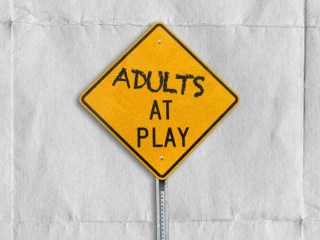When you know that someone you care about is self-harming, you might think, Holy shit, what should I do? What can I possibly say or do without making it worse? Despite the strides we’ve made in normalizing so many mental health topics, self-harm still seems to be taboo—thanks in part to the stigmatizing assumption that self-harm is just a means for gaining attention or sympathy, says therapist Arielle Mach, LCSW.
Being faced with self-harm might ring alarm bells, but it’s not usually like what you’ve seen in movies. Of course, anytime someone hurts themself on purpose it is serious, but it doesn’t mean they want to end their life. It’s also not uncommon. “Self-harm should be treated like any other mental health issue—any other thing that a person is struggling with,” says Mach. And, with the right support, it can get better.
Technically speaking, self-harm is the “intentional, direct destruction of body tissue … without conscious suicidal intent,” according to the American Psychological Association. That last part is why mental health professionals also call it nonsuicidal self-injury. Though it’s not the same as suicidality, self-harm can be dangerous, says Mach.
Self-harm itself isn’t a mental illness; it’s a way some people cope with hard emotions when they’re at a loss for better ways to deal, says Mach. In her experience, people also self-harm when they’re emotionally numb or to give themselves a sense of control. They might do it as a form of self-punishment too, she adds. After self-harming, people might feel a lot of shame and sometimes do it again to manage big feelings that stem from the shame. That can spark a dangerous cycle, per the National Alliance on Mental Illness.
Anyone, at any age, might engage in self-harm, notes Mach. That said, it’s most common in adolescents and young adults, per a review of research. Sometimes it can show up alongside larger mental health issues, like depression, anxiety, borderline personality disorder, or PTSD, Mach adds.
Because this is such a complex mental health issue, you shouldn’t try to handle it all on your own, says Mach. Ideally, your person would also seek help from a licensed mental health professional trained in treating self-harm, she notes. (More on that later!) But there are ways you can be there for them.
Whether somebody just told you about their self-harm or you want to be prepared JIC, here are some specific ways you can support them, according to mental health professionals who treat self-harm.
Leave your judgment at the door.
People who self-harm are often scared to be judged for it, says Mach. That can make being open about this mental health struggle…a struggle. “I think people are more comfortable sharing things like, ‘I feel depressed’ or ‘I feel anxious’ or ‘I’m having panic attacks,’ but there's still a very big stigma around harming yourself on purpose,” she explains.
If they feel judged, they may not be open about their self-harm. Instead, they’ll shut down without asking for the support they likely need from you, explains Mach. Saying something like, “I’m so sorry you’re going through this. This must be really hard. Do you want to talk about what’s going on?” shows your loved one that you’re not gonna look at them differently, she says. It’s better than, “You shouldn’t do that,” or, “I wish you wouldn’t do that.” Even if you mean well, statements like those two make people feel ashamed, Mach notes. After all, many people who self-harm would agree. They wish they wouldn’t hurt themselves either—they just don’t know what else to do, she explains.
You might not understand why they’re self-harming. That’s fair. But asking questions to learn more about their perspective can keep the convo going in a non-shamey way. Say, “I’m really trying to understand what's going on with you. Can you tell me a little bit more about what triggers your self-harm?” suggests Mach. They might not even know the answer, so that’s OK too. You’re not there to interrogate them!
Just listen to them.
If you have no clue how to respond after they say they’re self-harming, just reflect back what they’re expressing to you, suggests clinical psychologist Ashley Schwartzman, PsyD. When you do that, be sure to ask if you got it right, she says. This way, they know you’re trying to get a grasp of what they’re going through. You might feel dumb for repeating their thoughts back to them, but it goes a long way to show them you’re a safe space. Plus, this communication skill is legit; it's part of active listening.
After you hear them out, thank them for coming to you. Try something like, “I know this must be hard for you to talk about so I’m really glad you came to me. Thank you,” suggests Dr. Schwartzman. This shows they’re important to you and encourages them to come to you in the future, she says.
Talk about other ways to manage Big Feelings.
Again, when someone wants to self-harm, it’s usually because they’re trying to deal with something in their life. So a big part of stopping these behaviors is finding different coping skills. That might look like distracting themself with TV or music, going for a walk, or splashing cold water in their face, Mach explains. Using these skills can give your mind and body a break from the emotionally charged experiences that may otherwise lead to self-harm, explains Dr. Schwartzman.
Talking about how they’ve coped with intense feelings without self-harming can make it easier to turn to those skills in hard times, says Mach. Then, if they come to you later with those urges, you can remind them that going on a walk or watching a show has helped them before, she notes. You can even offer to do these things with them so they’re not alone, she adds.
Of course, working with a professional to figure out coping skills is most helpful, both therapists say. So encourage them to seek help or offer to help them find it so they can get tools from the people who know what they’re talking about. (More on this in a bit!)
If you’re a parent or caregiver of someone who self-harms, you can actually go to dialectical behavioral therapy (DBT) sessions, either by yourself or in skills groups with your kid and other caregivers, to learn stuff like this, says Dr. Schwartzman. If this applies to you, you might want to check those out to better support your kid.
When in doubt, ask how you can best help them.
If you’re at a loss, you can ask your loved one what they need. Opening the floor to them shows that you care and want to support them in the moment. And, since everyone is different, don't just assume you know what they need from you, says Mach. Give them the chance to tell you.
You can also ask what’s not helpful and respect those boundaries moving forward. That shows them you’re an emotional outlet now and in the future. Maybe they don’t want to give you specifics. In that case, don’t press them, says Mach. If they say they don’t want you to keep asking them about their self-harm, give them space to come to you. That said, if they feel like they may self-harm when they're alone, it’s encouraged that you stick around, Mach notes.
Get emergency help if they need it.
When someone tells you that they hurt themself on purpose, it doesn’t necessarily mean they want to die. Like we said before, self-harm and suicide attempts aren’t the same. However, some research suggests that having a history of self-harm can put someone at higher risk of suicidal thoughts and suicidal behavior.
If somebody you love has just hurt themself on purpose and you think their life is in danger, it’s best to err on the side of caution, both experts say. As someone who isn't a trained professional, you wouldn't necessarily know how to determine whether or not a person who's self-harming is suicidal, Mach explains. That’s not on you to figure out. Instead, call a crisis mobile unit in your area, 988, or 911, or take them to the nearest emergency room where they can get a proper assessment, suggests Dr. Schwartzman.
Help them find support.
Again, since self-harm is serious, it’s not something that non-mental health pros should handle solo, says Mach. That’s also a lot of pressure to put on yourself. While showing your support is important, someone who self-harms also needs help from a licensed, trained professional, she explains.
Aside from taking the onus off of you, a mental health pro can help someone who’s self-harming with the things we’ve already talked about: finding new coping skills, planning for what to do if they’re in a crisis, and learning more about why they self-harm, says Dr. Schwartzman. Your person may also feel more comfortable being honest with a therapist about what they’re going through, she notes.
For all of these reasons, asking if you can help them find a therapist is a good move. In a perfect world, they’d book an appointment with a mental health pro who has experience working with people who’ve self-harmed using therapies like dialectical behavior therapy and cognitive behavioral therapy, notes Mach. Good directories to start off with are Psychology Today and the Association for Behavioral and Cognitive Therapies.
Once they’re set up with a pro, you can step in from the sidelines with extra support when they need it.
Wondermind does not provide medical advice, diagnosis, or treatment. Any information published on this website or by this brand is not intended as a replacement for medical advice. Always consult a qualified health or mental health professional with any questions or concerns about your mental health.





